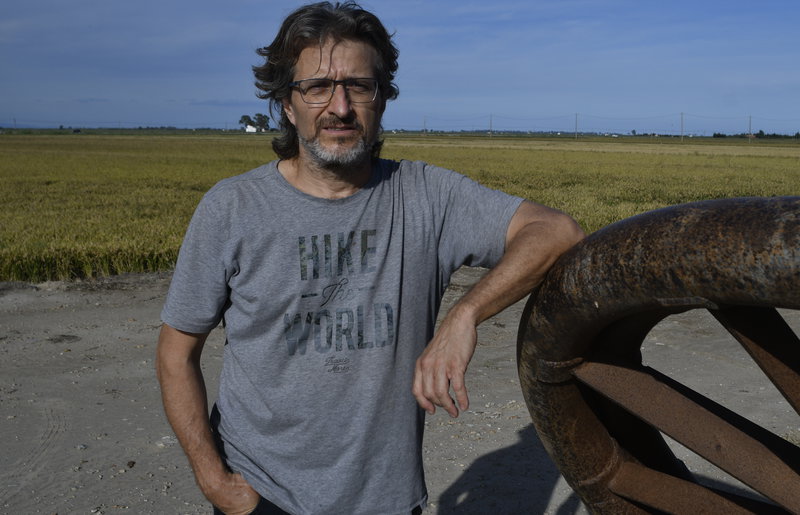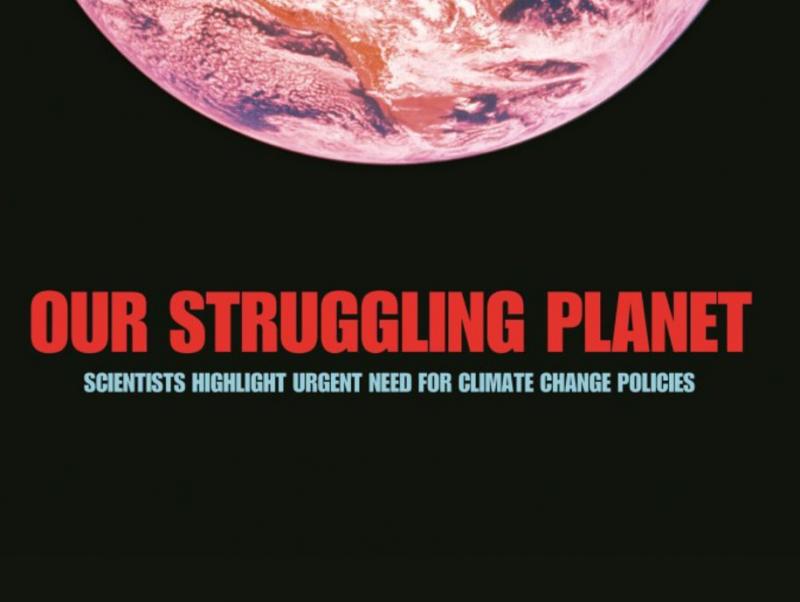Features
Xavi Jiménez
PRESIDENT OF THE GEPEC-EDC ECOLOGIST GROUP AND SECRETARY OF THE CATALAN FEDERATION OF ECOLOGISTS
“We must take action now”
Environmental groups warn that the necessary measures are not being taken to mitigate the effects of the environmental crisis. We spoke to the head of the GEPEC-EdC, which has been working to preserve nature for over 35 years
“Often, merely applying EXISTING rules would REsolve many situations” “WHAT OUR POLITICIANS SHOULD DO IS ENSURE COMPLIANCE WITH THE LAW”
The GEPEC-EdC has campaigned most against certain renewable energy projects. But why, when clean energy is something we urgently need?
The starting point with renewable energy is the premise that energy transition is an urgent priority because of the climate crisis. We need to end energy based on fossil fuels and focus on non-polluting renewable sources. Yet energy transition comes in different forms, with some projects that are compatible with preserving environmental, social and cultural aspects, while others would be a disaster for the country.
Is it an issue of the best model?
Yes, if we’re talking about a system that would be a disaster for the conservation of biodiversity and natural spaces, which are what we want to protect with this energy transition. Although there’s a need to generate renewable energy, at the same time we see that the energy transition model being imposed is set by the usual large energy corporations, which for the most part are the ones who cause greenhouse gas emissions. Now they’re trying to impose their model on us, which is designed to just maximise profits.
What is the alternative?
A sustainable energy transition compatible with preserving natural environments, which is friendly, participatory and democratic. Not imposinging large projects that often ignore the needs of natural spaces, biodiversity, landscapes, agricultural activity, and so on. We environmentalists, and many in the scientific community, are fighting for this energy transition to be made according to different criteria, such as distribution. This means producing energy close to where it’s consumed. And it must be in places where it has least impact, such as in spaces that have already been degraded by human activity. For example, the 29,000 hectares of industrial estates we have in Catalonia.
In the case of windmills, we see the impact on the landscape, but you also report a serious impact on biodiversity.
The data have been coming in for years because we’ve had wind turbines for some time and we can see the impact. In 2012, at the First Iberian Congress on Wind Energy and Wildlife Conservation, SEO Birdlife had a study that warned that the 18,000 wind turbines in Spain at the time – there are more now – were killing between up to 18 million birds and bats a year. Since then new studies have confirmed this. It’s a paradox that wind farms aimed at mitigating the effects of climate change cause the extinction of species.
That’s quite a contradiction.
That’s why the scientific community insists on the need to rethink this energy transition model, so that it is truly sustainable. We are in a real climate emergency, but the measures we’re implementing are actually aggravating the environmental damage.
Is the public really aware of what a climate emergency means?
This summer we had heavy rains in Germany and the Netherlands, with fatalities. We’ve had devastating fires, rising temperatures... Ordinary people on the street can see this because they are experiencing it. However, quantifying biodiversity loss is a more scientific issue. We need to keep in mind that both species extinction and climate change are part of a major environmental crisis, as is the decline in air quality, which is also very serious but still little known. The latest figures for deaths from poor air quality in Spain are 44,600 people a year, or 11% of all deaths.
What should we demand from the authorities?
We should expect decisive action to implement what is already the law. Often, merely applying existing rules would resolve many situations. An example is the airport debate. It’s not about approving an expansion that would affect La Ricarda lagoon. It is a protected natural space, a unique and irreplaceable spot. La Ricarda was declared a nature reserve by the Catalan government and is part of the EU’s Natura 2000 network, so it should not be part of the debate on expanding a runway. What our politicians should do is ensure compliance with the law. It would be like Barcelona City Council modifying the Sagrada Família as part of an urban plan. They can’t, it’s protected by law.
One complaint is that there’s no department that deals with these issues.
Exactly, since 2010 the government hasn’t had an environment department, and environmental powers have been shared among various departments. In the current legislature, all the powers have been assumed by the agriculture department, which is now called Climate Action, Food and Rural Agenda, but it is the same department, with the same structure, and even the same minister. All major countries have an environment department with broad powers, and we should be able to compare ourselves with countries like Germany and France in terms of the importance given to environmental policies in government structures.
What role does awareness play in the fight against the environmental crisis?
We always thought that by educating the younger generations we’d achieve change. But while environmental education remains important, what’s most urgent now is taking drastic action immediately. When scientists talk about the effects of climate change they aren’t making a forecast for a hundred years, but rather twenty, or thirty. We could witness it and so steps must be taken now.
interview environment
From the local to the global
The Group for the Study and Protection of Catalan Ecosystems (GEPEC-EdC) is an NGO that promotes awareness of above all the local environment. Biologist Xavi Jiménez is its president, and he defends the importance of individual actions: “Global problems arise from the actions of each of us. Things as simple as recycling, worrying about energy savings, walking and not using the car whenever possible... these are small things that may seem unimportant to us, but that make a difference. We have to understand that a global problem is the sum of all our actions as individuals. We must change our habits and accept individual and collective responsibility,” he insists.
Related news
Leave a comment
Sign in.
Sign in if you are already a verified reader.
I want to become verified reader.
To leave comments on the website you must be a verified reader.
Note: To leave comments on the website you must be a verified reader and accept the conditions of use.




